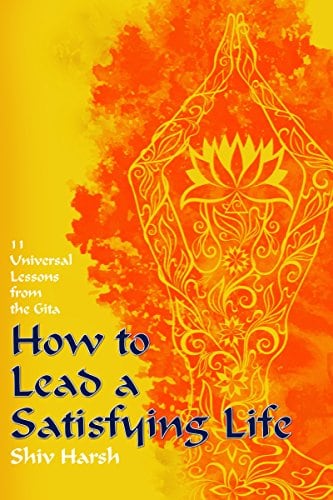Description
Shiv Harsh has used a time-honored epic from India to highlight the chief ingredients of a happy, satisfying life. The Gita is a classic among books on philosophy and religion. It discusses the true nature of yoga, the relationship between a perishable body and an immortal soul, and the connection between God and man. It outlines the role of unchecked desire in destroying happiness, emphasizes the wisdom of anger management, and offers many practical tips.
The Gita is part of a larger text, the Mahabharata, which traces the history of ancient India through the story of the related Kaurava and Pandava clans. The Kauravas’ lust for the kingdom rightfully belonging to the Pandavas brings the families to the brink of war. In the middle of the battlefield, prior to the start of hostilities, the brave and just Pandava warrior Arjuna suffers from pangs of anxiety, insecurity and severe doubt about the wisdom of fighting against, and killing, those near and dear to him.
Fortunately, his charioteer is none other than the Hindu god Lord Krishna, who soothes Arjuna’s anguish, answers his pointed questions, and offers him counsel. Their dialogue forms the body of the Gita.
In this book, Shiv Harsh chooses a selection of verses from the Gita to highlight the dilemmas human beings faced in ancient times, and continue to face today. He translates the original Sanskrit to everyday English and uses examples drawn from modern life to illustrate the principles of dharma, or duty, and karma, or action. He explains how to maintain a sense of focus, steadfastness, and tolerance and how to avoid going down the slippery slope of ever-increasing frustration, anger and dissatisfaction.
Shiv Harsh reminds us through the Gita that the common problems human beings face are universal, and so are their solutions.





Comments